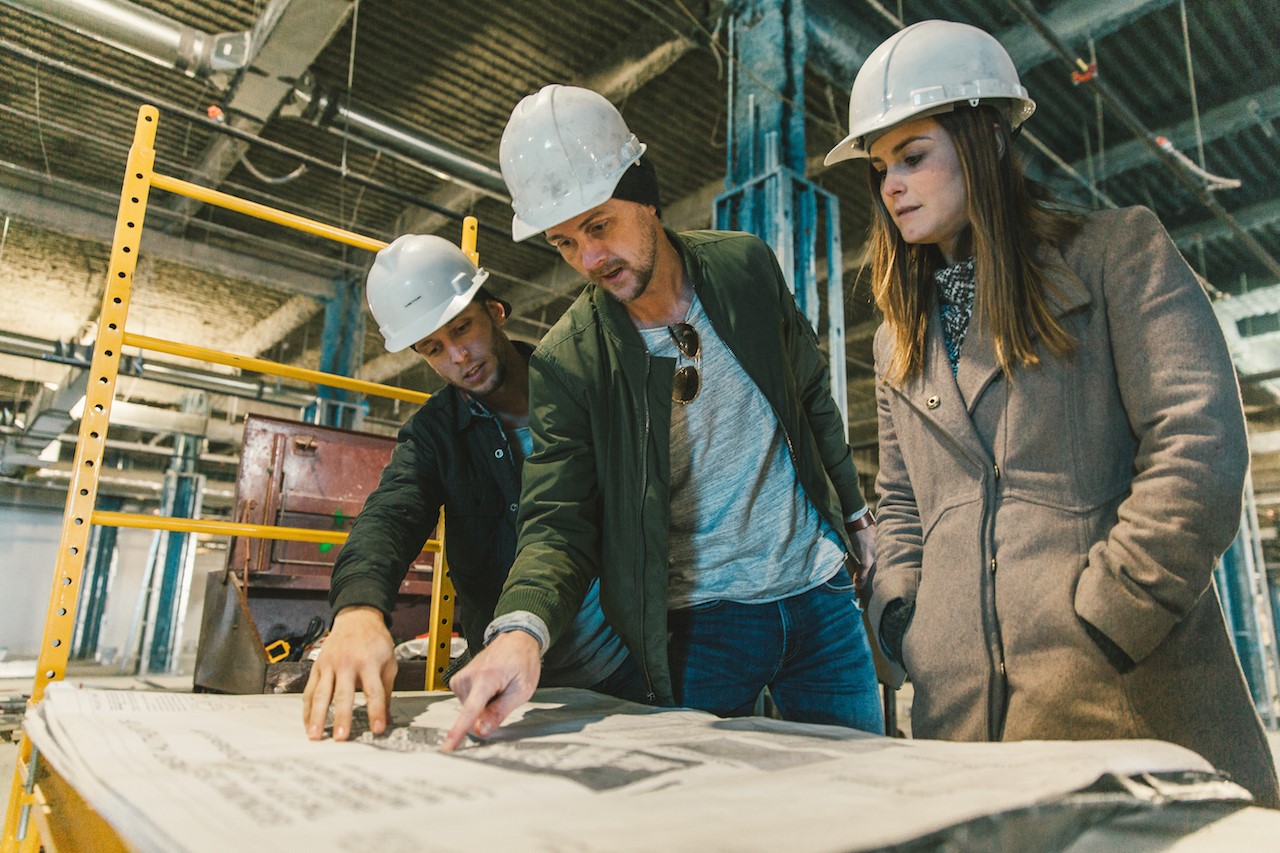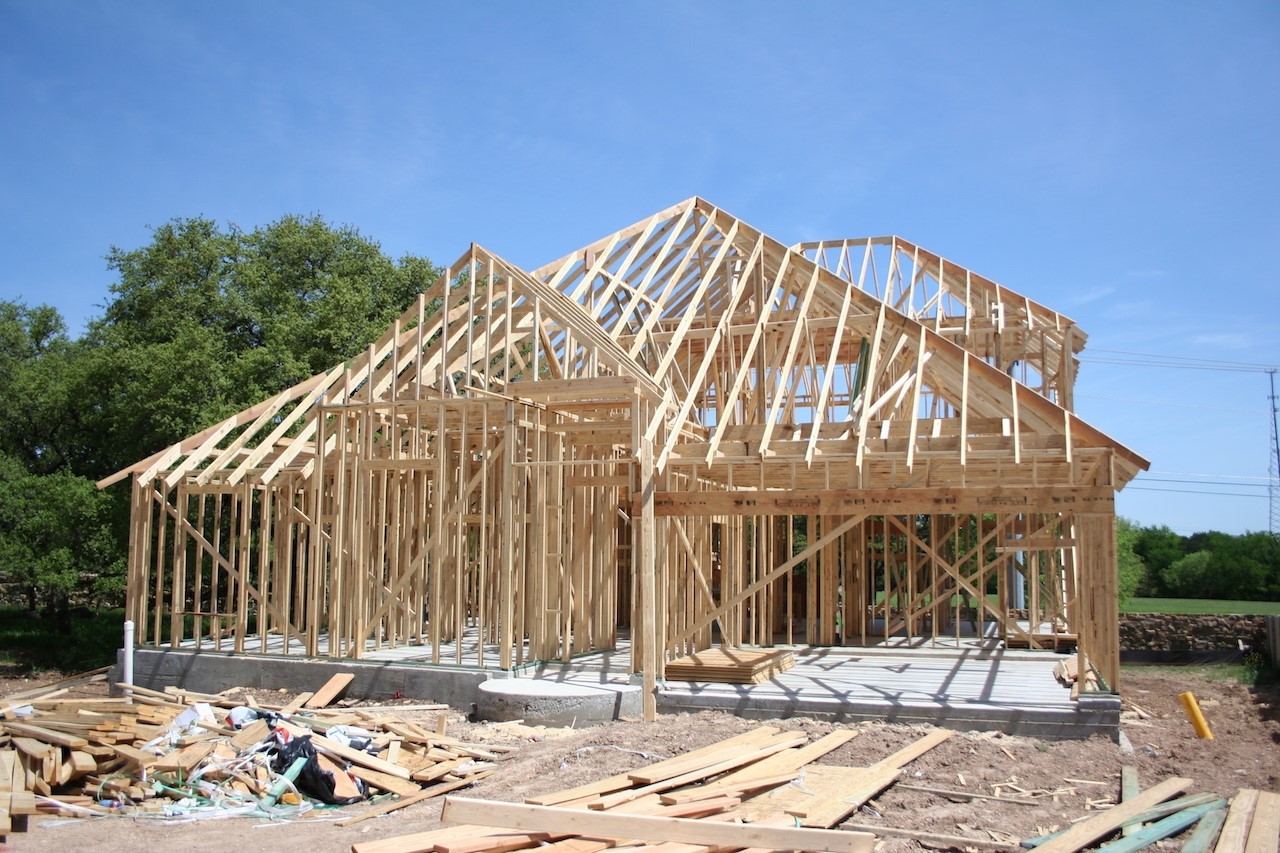Buying new (construction) - so hot right now
If you're a first-time homebuyer – or even second-time for that matter – purchasing a newly built home may feel like a long shot for you because it seems unfamiliar or undeserved.
But we say; well, why not?
In many cities, home builders are answering the inventory shortage with new residential developments that provide a range of pricing options, customization and convenience. And there could even be a house – or lot – waiting for you there too.
Ok, you could be persuaded, but how does one go about buying a new construction home anyway?
We hoped you would ask, so we reached out to a builder site agent and a mortgage underwriter specializing in new construction for answers. After all, if there are options out there, we want you to know about them.
Why buy new construction?
Sure, you're the first to own the place and who doesn't want that new house smell? But Robert Rosenberger, a new home specialist for Eastwood Homes in Charlotte, NC, says personalization is one of the biggest draws to new builds.
"Homebuyers like new construction because of the choices. A lot of builders today give buyers the chance to come to a design center and make feature selections. You can do a lot without ever having to do an entirely custom build," he says.
Energy efficiency, access to the latest materials and trends, and joining neighbors in making a new development what you want it to be amount to a pile of new home construction perks.
What's it like to work with a home builder?
Every builder is different, says Rosenberger, but in his experience the builder has site agents who operate like real estate agents for the company, keeping the buyer informed every step of the way.

"Once someone's purchased, we let them know upfront it takes about six weeks to get a builder permit. We'll have a pre-construction meeting with the builder to make sure everyone's on the same page and each week send out photos showing what's going on with the home," he says.
Doesn't building a home take a long time?
It can, depending on how customized you want it and who you work with, but Rosenberger says five to six months is typical. Some builders even keep an inventory of move-in ready homes in case a buyer can't wait.
What should someone do to prepare for buying new construction?
Figure out what you can afford by talking to a loan officer before talking cabinets and colors.
"It's always good to find out what your buying power is. People sometimes come in who have no idea what credit is or what they can do financially. We can help someone discover what that is before starting the process," says Rosenberger.
Speaking of money, how do you finance a newly built home?
Just to be clear, there's a difference in the mortgage industry between a construction loan and financing a new construction home. Sometimes you need financing to pay for both the construction and then the mortgage on the new home, sometimes you only need to finance the mortgage after the home is built. The home builder and your loan officer can help you know what's needed.

At Movement Mortgage, underwriter Christina Busby spends her days reviewing mortgage loan applications for potential buyers of newly built homes. She says most of the common loan types apply to new construction too – conventional, VA, FHA and USDA can all work. What's different about financing a newly built home is the timeline of the construction process.
"Expect to provide everything for your loan application at time of submission. About 60 days before closing you'll have to have everything updated again," says Busby.
Most approved home loans expire at about 90 days which means the length of time it takes to build a new construction home is generally going to go beyond that expiration date. So when it comes to a new build, you can expect to be approved, then need approval again a second time.
The good news is that as long as you don't make any significant changes, you'll know exactly what to expect with that second submission and it should bring the same results as the first.
Which leads us to a strong word of caution.
"We see it all the time where you have a perfect borrower and six months down the road they may have been late on a credit card or didn't save as much as they needed to. Or they buy another car halfway through and it causes problems toward the end." says Busby. "Talk to your loan officer about do's and don'ts when you're going through the new construction process."

That's a "house" wrap
If you're now imagining yourself in your newly built home featuring a perfect paint job, shining floors and that fresh house fragrance, our experts have a few parting words you should keep in mind.
"Reach out to a loan officer before making any big decisions. Get your financial documents in as fast as possible and get an approvable loan to know where you stand – and be prepared for financial updates toward the end of the building process," says Busby.
Says Rosenberger, "Buying new is fantastic, there's nothing like owning a brand new home."


